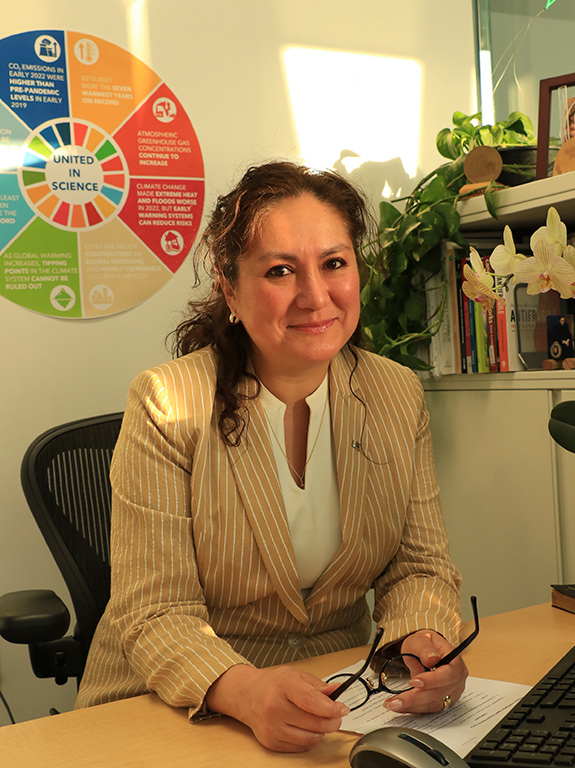Behave yourself and do your homework or you will be reported to the principal’s office! How many times have we heard the dreaded phrase? School education has often been a system of reward and punishment, where reporting leads to problems. Such a system usually lays the responsibility on parents regarding the explanation of the correct action.
Joint and integral collaboration between school and home would be ideal, as opposed to a blind trust of parents in school and vice versa. Thus, fear-free reporting would involve informing. Informing a status of the situation or the result, not for punishment purposes, but on the progress, for the sake of improvement.
Something similar is happening at the corporate level in sustainability issues and reporting. Some companies see reporting as punishment because the value chain to which they belong demands it. Others see it as the report that helps them to strategically position themselves and take on new challenges with an ethical vision.
However, considering that reporting on the organization’s sustainability is increasingly demanded by assemblies or boards as well as by consumers and the general public, reporting will become more and more common. Despite the above, general sustainability reports do not yet follow a universal standard that allows for quick comparison.

Among the most commonly used are:
- GRI Sustainability Reporting. The Global Reporting Initiative (GRI) is an independent international organization headquartered in the Netherlands, whose objective is to help organizations take responsibility for their impacts and communicate them in a common language. The GRI standards are well recognized that consider economic and environmental issues, as well as the needs of people and stakeholders. It is an easy-to-apply methodology that converts data into highly relevant information for strategic decision making in the organization from multiple approaches and areas.
- Integrated Reporting Framework or Integrated Report. This report follows the criteria of the International Accounting Standards Board (IASB) and the International Sustainability Standards Board (ISSB) of the International Financial Reporting Standards Foundation (IFRS). It is used to link financial statements and financial disclosures related to sustainability. It considers the efficient allocation of capital, generating financial stability and thus sustainable development. The report provides financial information for investors and, in a modular fashion, information related to other stakeholders.
- SASB standards. Along the same lines as the Integrated Report, the IFRS ISSB is responsible for the SASB Standards. The Sustainability Accounting Standards Board (SASB) has already issued 77 specific instruments for the industry and a number of organizations. They identify sustainability risks and opportunities and indicate how to communicate them.
- Reporting Sustainable Development Goals (SDGs). Although there are some guidelines, reporting the contribution of organizations to the achievement of the SDGs is to report progress on the targets through the existing indicators proposed by the 2030 Agenda. It is worth remembering that SDG macro monitoring and reporting is a national competence. However, it is remarkable that for this to happen, it is the organizations that are making the difference by bringing the commitment to the 17 objectives into their operation.
In 2021, the International Federation of Accountants (IFAC) published the Global Reporting and Assurance Practices study, which evaluated the 1,400 largest companies in 22 jurisdictions worldwide. The study shows that GRI and SDG reporting are the most common and that more than two-thirds of companies informed they use multiple frameworks/standards. The aforementioned study highlights the lack of consistency and comparability that persists in the absence of harmonized global standards.
A breakthrough in this regard occurred last June 2023, when the ISSB published International Financial Reporting Standards (IFRS) S1 and S2. They deal with General Requirements for Disclosure of Sustainability-related Financial Information and Climate-related Disclosures, respectively. In Mexico, the National Banking and Securities Commission will determine the applicability.

Thus, should a financial regulatory framework point the way to the company’s sustainability? In other words, will ESG take precedence and become the new sustainability?
However, regardless of the reference framework for reporting, reporting is no longer a desirable practice, but a very necessary one, if not mandatory for the time being. The biases of the different frameworks are apparent, but they are nonetheless relevant, because in principle, they contribute to the common goal of working for a better world.
For many, the financial issue should not be more important than corporate social responsibility, always considering that business should be business. For others, with the view that finances are the most relevant, considering the impact of the social and natural environment in the income statement is already a step forward. Finding the balance and position of each organization in its context is part of the challenge in defining how to address sustainability.
Now, reporting is not about punishment or reward, reporting is now part of the awareness of an organization that knows what is right and what is wrong.
Author information:
Dra. Joaquina Niembro, Professor-Researcher at the School of Engineering for Universidad Panamericana.
Article taken from








